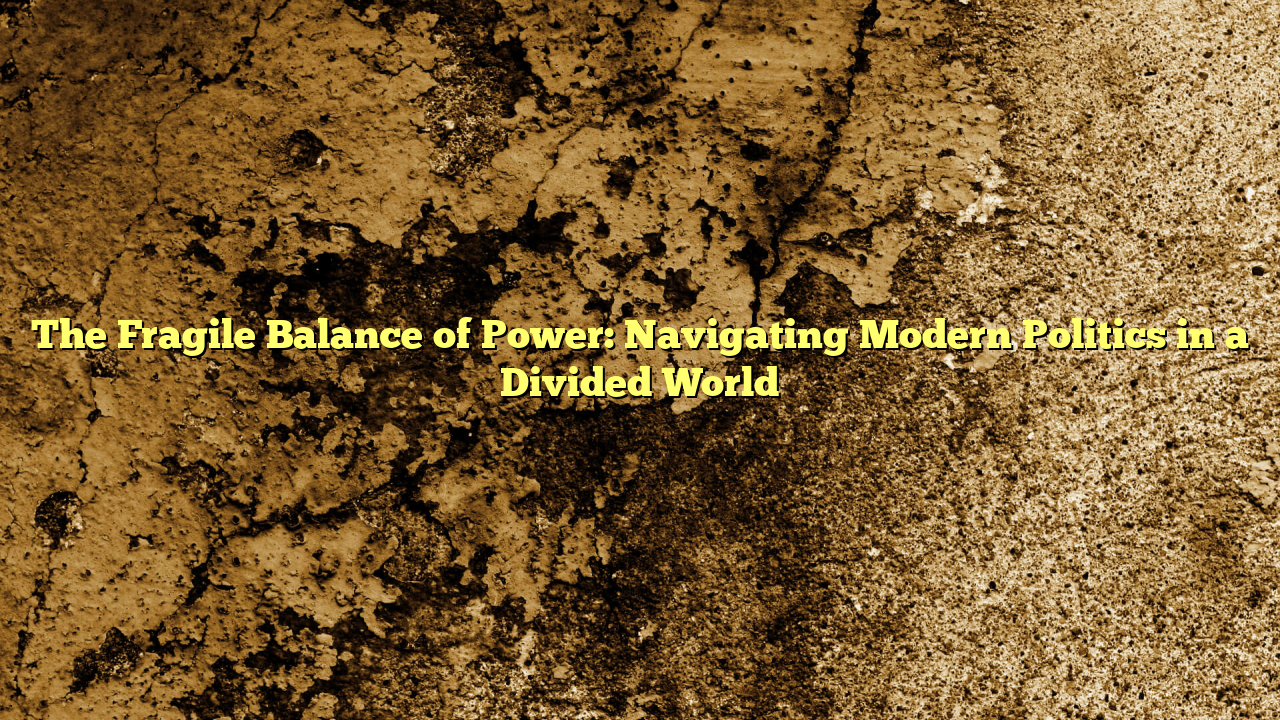In today’s world, politics is more than just policy-making and elections; it’s a reflection of social values, power structures, and public sentiment. As societies evolve, so do their political landscapes. In recent years, we have witnessed significant shifts across the globe—marked by rising populism, polarization, and growing mistrust in institutions. These changes pose both challenges and opportunities for democratic governance.
The Rise of Political Polarization
One of the most concerning trends in modern politics is polarization. In many democratic countries, political discourse has become deeply divided along ideological lines. Citizens are increasingly aligning themselves with parties not just based on policy preferences, but on identity and values. This shift has resulted in an “us versus them” mentality that erodes the possibility of compromise.
The United States offers a stark example. The gap between Republicans and Democrats on key issues such as immigration, climate change, and healthcare has widened significantly over the past decade. This ideological divide has spilled over into the public arena, influencing media consumption, social relationships, and even trust in scientific or academic institutions.
Polarization also affects political behavior. Voter turnout may increase during polarized times, but cooperation among elected officials often decreases. This gridlock hampers effective governance and fosters frustration among citizens, which, in turn, may drive them toward more extreme political options.
Populism and Its Global Appeal
In parallel with polarization, populist movements have gained traction. Populism is typically characterized by a narrative that pits “the people” against “the elite.” While megawin138 can emerge on either side of the political spectrum, the underlying message is consistent: the system is broken, and only a strong, often charismatic leader can fix it.
From Brazil to Hungary, and from the Philippines to Italy, populist leaders have risen to power by tapping into economic anxieties, cultural insecurities, and a sense of lost national identity. These leaders often challenge traditional checks and balances, weaken the independence of institutions, and promote policies that are popular in the short term but risky in the long term.
While populism can bring neglected issues to the forefront—such as corruption or economic inequality—it can also lead to authoritarian tendencies. In some countries, populist leaders have limited press freedom, undermined judicial independence, and concentrated power in the executive branch.
The Role of Technology in Shaping Political Discourse
Another significant factor transforming politics today is the role of technology and social media. Digital platforms have democratized access to information but have also become breeding grounds for misinformation, echo chambers, and political manipulation.
Social media allows politicians to speak directly to the public, bypassing traditional media filters. While this can promote transparency, it also creates an environment where emotional appeals often overshadow facts. Algorithms tend to amplify sensational or polarizing content, which can deepen existing divisions and distort public debate.
Furthermore, foreign interference in elections through cyberattacks and disinformation campaigns has become a real threat, undermining trust in democratic processes.
Finding a Path Forward
Despite these challenges, there are paths forward. Strengthening democratic institutions, improving civic education, and promoting inclusive dialogue are essential steps. Voters must be encouraged to engage with diverse viewpoints and to prioritize policy over personality. Political leaders, in turn, must show a willingness to compromise and work across the aisle.
Media literacy and critical thinking should be core components of education systems to help citizens navigate the digital age. Transparency in governance and accountability for political actors must also be reinforced.
Ultimately, politics is a human enterprise—imperfect, complex, and ever-changing. In a world where change is the only constant, adapting our political systems to be more resilient, inclusive, and responsive is not just ideal—it’s necessary.
